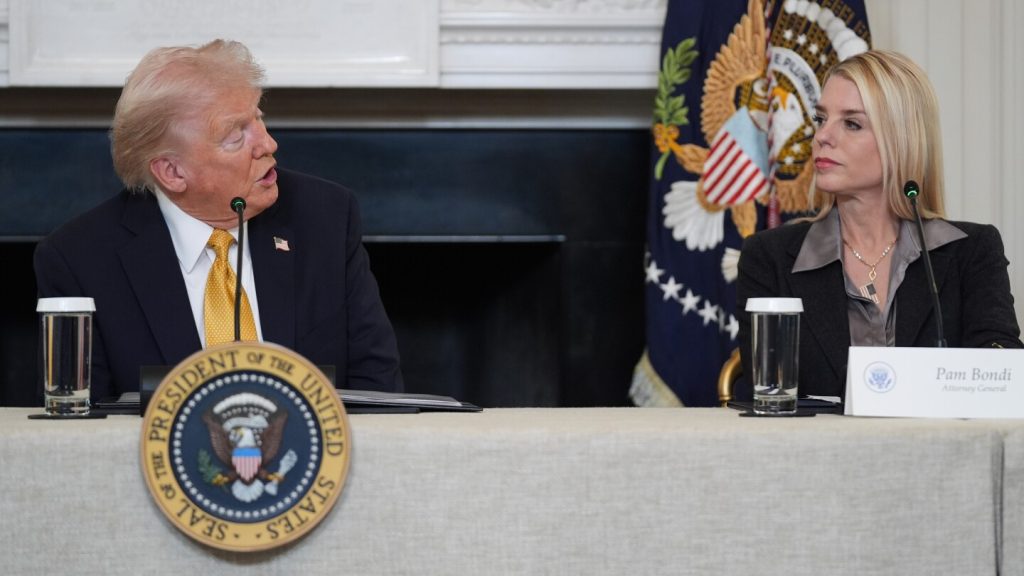Listen to the article
The Justice Department has launched a new investigation into Russian interference in the 2016 presidential election, issuing numerous subpoenas as part of a grand jury inquiry operating out of the Southern District of Florida, according to multiple sources familiar with the matter.
The investigation centers on the Obama administration’s intelligence community assessment from January 2017, which concluded that Russia conducted a covert campaign to help Donald Trump defeat Hillary Clinton in the 2016 presidential race.
While the specific criminal allegations remain unclear, this probe appears to fulfill Trump’s long-standing pledge to seek retribution over the Russia investigation that overshadowed both his campaign and the early years of his presidency. The investigation comes amid broader Justice Department scrutiny of several Trump political adversaries.
Sources indicate that as many as 30 subpoenas may be issued. Among the known recipients are former CIA Director John Brennan and former FBI employees Peter Strzok and Lisa Page. Strzok, once a top counterintelligence agent, was fired from the FBI, while Page, an FBI lawyer, resigned. Both were involved in the original Russia investigation and became controversial figures after the discovery of text messages they exchanged criticizing Trump.
The Trump administration has particularly focused on the intelligence community assessment because a classified version incorporated elements from the “Steele dossier.” This controversial document was compiled by former British spy Christopher Steele as Democratic-funded opposition research and contained unverified claims about Trump’s potential connections to Russia.
Trump has consistently used the dossier’s weaknesses to attempt to discredit the entire Russia investigation, despite multiple government inquiries reaching similar conclusions about Russian interference.
Several comprehensive investigations, including bipartisan congressional reviews and former special counsel Robert Mueller’s probe, established that Russia interfered in the 2016 election through two main channels: a hack-and-leak operation targeting Democratic emails and a sophisticated social media campaign designed to sow discord among American voters.
Mueller’s report concluded that while the Trump campaign welcomed Russian assistance, investigators did not establish a criminal conspiracy between Russian operatives and Trump or his associates to influence the election outcome.
Since returning to the White House, Trump has continued his criticism of the Russia investigation. His appointed officials, including FBI Director Kash Patel, CIA Director John Ratcliffe, and Director of National Intelligence Tulsi Gabbard, have advocated for releasing previously classified documents aimed at undermining the original investigation’s credibility.
In July, Ratcliffe released a CIA report identifying what were described as “tradecraft anomalies” in the creation of the Obama administration’s intelligence assessment. The report specifically criticized the FBI’s decision to include a summary of the Steele dossier in a classified annex of the assessment, arguing that this “implicitly elevated unsubstantiated claims to the status of credible supporting evidence, compromising the analytical integrity of the judgment.”
The current investigation represents a significant escalation in the administration’s efforts to reexamine the foundations of the Russia inquiry. It also raises questions about the potential politicization of the Justice Department’s investigative powers, particularly as it follows other investigations targeting Trump’s political opponents.
The timing of this investigation, coming years after the events in question, has raised concerns among former intelligence officials about the precedent it sets for scrutinizing intelligence analyses produced during previous administrations.
Legal experts note that intelligence assessments typically involve judgments and analyses rather than the kind of factual determinations that might support criminal charges, making the precise nature of this investigation particularly unusual.
As the probe continues, it remains to be seen whether it will result in any criminal charges or simply serve as a mechanism to revisit and potentially reframe the narrative surrounding Russian interference in the 2016 election.
Fact Checker
Verify the accuracy of this article using The Disinformation Commission analysis and real-time sources.




10 Comments
This investigation into the 2016 election seems like a divisive political issue. I hope the justice system can provide a fair and impartial review of the facts, regardless of partisan leanings.
Agreed, the public deserves a thorough and unbiased examination of this matter. Transparency and integrity in the process will be key.
This inquiry could provide more clarity on a pivotal moment in US history. I’m interested to see if it sheds new light on Russian election interference efforts and the government’s response.
Agreed, greater transparency around the 2016 election is important for public confidence in the democratic process, regardless of partisan leanings.
Investigating the origins of the Trump-Russia probe seems like a sensitive and complex undertaking. I hope the DOJ can carry it out in a fair, fact-based manner.
I’m curious to see what new evidence or perspectives this inquiry uncovers regarding Russian interference. Robust scrutiny of intelligence assessments is important for public trust.
That’s a good point. Revisiting the 2017 assessment with fresh eyes could yield valuable insights, assuming the process is conducted professionally and impartially.
While I’m skeptical of politically-motivated investigations, I hope this probe into the 2016 election is handled objectively and avoids further polarization. Fact-finding should be the priority.
While this inquiry may be politically charged, I believe a thorough, non-partisan review of the 2016 election interference is warranted to inform future safeguards.
That’s a good perspective. Understanding the full scope of Russian meddling efforts is crucial for strengthening election security going forward.